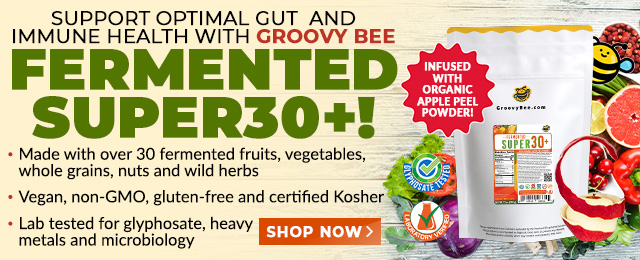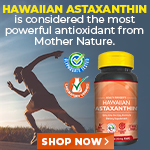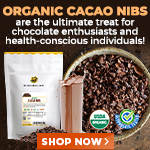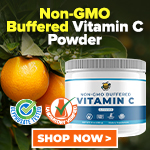Science proves that garlic may decrease dependency on antibiotics
Tuesday, February 23, 2016 by: Harold Shaw
Tags: garlic, antibiotics, natural remedies
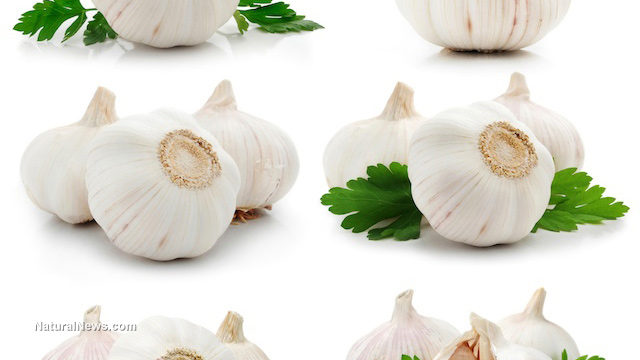
(NaturalNews) Ever since the 1940s, our trust and focus have been solely driven towards penicillin and the use of antibiotics, as these became widely employed by medical practitioners in the treatment of disease. For some reason, natural remedies weren't good enough anymore. They kept us alive for the better part of our history, but now it was time for man-made chemicals to take over. As it turns out, we made an incredible mistake when we pushed natural medicine aside.
Here's another reason why! What tastes great, smells awful and should be avoided at all costs before kissing someone? Garlic! For centuries, this plant was employed as a natural antibiotic. Until now, modern medicine has kept its distance from it, but recent studies have found that a compound inherent to garlic, Diallyl disulfide, is actually 100 times more effective against bacteria than antibiotics such as erythromycin and ciprofloxacin. What's more, garlic is 1,000 times more potent at piercing the protective outer layer of bacteria than our artificially developed chemicals.
Garlic through the ages
Knowledge of natural medicine has been passed down from one generation to another from ancient times. Indeed, the Ancients had health tips, but no blogs to spread them with, so folklore and mythology became the best way to transmit the importance of certain herbal remedies – and one of those was garlic. This plant has its very own role in mankind's history. Even the Babylonians and Romans used it as a remedy. In more recent times, garlic became the go-to cure on the battlefield of the First World War. Not everybody could afford penicillin, so they used garlic instead. Soon enough, the plant's effectiveness and widespread use earned it the title of "Russian Penicillin."Of course, folklore is not always reliable. After all, there's no Loch Ness monster, and vampires don't turn into bats – but it all starts from a grain of truth. Using this assumption, researchers dedicated more time to exploring the medicinal benefits of garlic. Experts from the Washington State University decided to give garlic a fair match-up against bacteria and see how it holds up. As it turns out, the smell doesn't only repel other people, but also diseases.
Last year, two other papers were published by the same researchers from Washington State, wherein the scientists from the department of Applied and Environmental Microbiology and Analytical Chemistry found that garlic can also kill food-borne pathogens like Escherichia coli or the ones responsible for causing listeriosis. That's right, garlic is also a great natural disinfectant and preservative.
You can trust Mother Nature
So, the good news is that you can use garlic to fight off the accumulation of bacteria in your body, as well as to clean food surfaces or preserve your food. More importantly, the compounds that make garlic what it is can easily be derived without the use or introduction of harmful chemicals. For the organic food industry, this is an incredible step forward, as it will provide manufacturers with new, harmless ways of maintaining the freshness of their products. Studies have also proven that it can help fight off cancer.Nevertheless, you shouldn't stop here. Garlic is not the only natural remedy you can use in the fight against disease and illness. From various fruits and veggies, to spices and essential oils, there is a world of green remedies out there ready to provide your body with vital nutrients. Unlike prescription drugs, natural medicine doesn't come with incredibly harmful side-effects. At most, you'll get a stomach ache. So, all things considered, isn't the smell of garlic a small price to pay for great health?
Sources include:
HealthyFoodHouse.com
AmericanFolklore.net
ACS.org
NCBI.NLM.NIH.gov
Science.NaturalNews.com
Garlic at FETCH.news
Get independent news alerts on natural cures, food lab tests, cannabis medicine, science, robotics, drones, privacy and more.
Take Action: Support Natural News by linking to this article from your website
Permalink to this article:
Embed article link: (copy HTML code below):
Reprinting this article:
Non-commercial use OK, cite NaturalNews.com with clickable link.
Follow Natural News on Facebook, Twitter, Google Plus, and Pinterest
- Newly released JFK files reveal Pentagon's role in creating Lyme disease and covid in the same lab
- Ginseng's hidden anti-aging power: How compound K is rewriting the rules of skincare
- “Endgame: The Hidden Agenda 21” unveils a world of conspiracy and control
- L.A.'s rebuilding nightmare: Only 4 permits issued after fire destroys 6,000 homes
- Scientists demand FDA withdraw mRNA COVID vaccines amid contamination and gene therapy concerns
- Senate Democrats deny censorship industrial complex existed, defend government's role in silencing dissent
- Dr. Suzanne Humphries makes bombshell appearance on Joe Rogan podcast, exposing vaccine industry deception back to POLIOMYELITIS
- Former Congresswoman exposes CCP's deep infiltration of California through universities, ports, and fentanyl
- “The shame of Minnesota”: Somali immigrants behind $250 million child nutrition fraud in largest COVID-era scam
- PROCESSED TABLE SALT in foods found to fuel depression
- Despite surge in MMR vaccination in Texas, measles outbreaks continue: Is VACCINE SHEDDING fueling the spread?
- “Independent” anti-Russia outlet MEDUZA faces COLLAPSE as US funding dries up
- Here are TEN all-natural ways to protect your garden without using harmful chemicals
- BPA: The hidden hormone disruptor sabotaging your health - and how to fight back
- Chewing gum's dirty secret: How your daily habit could be flooding your body with microplastics
- The hidden battle in your glass: How A1 and A2 milk could shape your health
- Catastrophic 7.7 earthquake devastates Myanmar and Thailand; death toll could reach 100,000
- CDC finally halts $11 billion COVID funding scam as health officials admit the ‘pandemic’ was a fraud
- Newly released JFK files reveal Pentagon's role in creating Lyme disease and covid in the same lab
- Analysis: The coming economic collapse, a mass uprising and Trump's three secret weapons to halt the growing revolt
- Festive flavors: The sweet history, nutritional profile and health benefits of pecan pie
- Elon Musk: Aliens could be here on Earth RIGHT NOW
- Trump reverses course on Gaza plan, says “nobody is expelling Palestinians”
- Big Pharma's $8 Billion bribery scheme exposed: how doctors are pushed to prescribe junk science, not heal
- Boys are back in town: Trump’s patriotic alpha crew takes the wheel while toxic females ride in the backseat
- Reclaim your health: How midlife exercise reverses years of inactivity
- A lack of integrity in Academia: Harvard professor found GUILTY of fraudulent research to promote CRT theory
- Survival 101: Effective EMF blocking techniques
- EPA advisor admits the agency is funneling billions to climate groups ahead of Trump’s return to White House
- Dr. Mike Yeadon releases 15-minute testimony - WATCH - about genocidal intent of COVID “vaccines”
- 5 Simple steps to boost your brainpower: How to strengthen executive function in a distracted world
- Florida takes a stand: DeSantis proposes permanent ban on mRNA vaccine mandates
- Sugarcane extract superior to cholesterol-lowering drugs?
- Mike Adams Sermon 66: God will DESTROY ISRAEL for its wickedness
- Pilots report mysterious lights 'moving at extreme speeds' across Oregon skies
- Space war brewing? Russia threatens to destroy Starlink satellites
- EPA advisor admits the agency is funneling billions to climate groups ahead of Trump’s return to White House
- California's social media censorship law struck down: A victory for free speech or a threat to online safety?
- The Health Ranger releases “Vaccine Zombie” song and music video, using AI-animated zombies for the music video
- Dr. Mike Yeadon releases 15-minute testimony - WATCH - about genocidal intent of COVID “vaccines”
- The pandemic as a tool for INDOCTRINATION: Understanding “The Indoctrinated Brain” by Dr. Michael Nehls
- Newly released JFK files reveal Pentagon's role in creating Lyme disease and covid in the same lab
- Florida takes a stand: DeSantis proposes permanent ban on mRNA vaccine mandates
- Mike Adams releases country western hit single: Goin’ Back in Time is Comin’ Home
- Mike Adams releases music poetry sensation: A Child of God
- “Why we influenced the 2020 elections”: Facebook files reveal the coordinated effort to bury the Hunter Biden laptop story
- Unpacking the Lies That We’ve Been Fed – new song and music video released by Mike Adams, the Health Ranger
- RFK Jr. clears key hurdle: Sen. Susan Collins backs controversial HHS nominee, signaling a new era for health policy
- Mike Adams releases new song and music video: Nothing More Disgusting Than a Globalist
- Michigan sheriff announces criminal investigation into 2020 election crimes, Dominion Voting Systems
- Israeli soldiers accused of even more torture and abuse in the West Bank
- Migrants are taking advantage of recent hurricanes to scam residents and loot their homes
- House Intelligence Committee calls for the ARREST and PROSECUTION of Dr. Anthony Fauci
- Rep. Nancy Mace introduces bill to ban biological males from female facilities on federal property
- Red Cross issues warning to stop blood plasma donations from vaccinated people
- Scientists confirm: GENIUS brain function can be spontaneously unleashed in humans without any apparent cause
- EPA advisor admits the agency is funneling billions to climate groups ahead of Trump’s return to White House
- HYSSOP: What research reveals about the health benefits of this ancient holy herb
- Two containers with completed ballots fall out of truck in Florida
- Fully vaccinated about to see “tsunami” of illness and death, warns virologist
- Global leaders unite to clamp down on “misinformation” with UN-backed Cascais Declaration
- BREAKING: 2025 NDAA authorizes mandatory military draft of WOMEN across America… as Pentagon pursues global NUCLEAR war with both Russia and China at the same time
- Michael Yon warns of a ZIONIST TAKEOVER in Trump’s second administration
- BOMBSHELL: DNA testing kits are a SCAM to develop ethnic-specific bioweapons
- Ozempic and Wegovy weight loss drugs are injectable LIZARD VENOM PEPTIDES that may unleash a devastating wave of organ failure… side effects align with symptoms of SNAKE BITES
- Israeli soldiers accused of even more torture and abuse in the West Bank
- These 13 countries just signed an agreement to engineer a global FAMINE by destroying food supply
- NASA admits that climate change occurs because of changes in Earth’s solar orbit, and NOT because of SUVs and fossil fuels
- RFK Jr. clears key hurdle: Sen. Susan Collins backs controversial HHS nominee, signaling a new era for health policy
- Sermon 30: How Jesus reveals Caesar’s FAKE CURRENCY and FALSE AUTHORITY
- Coriander seeds: Ancient medicine backed by modern science
- Arizona officials claim Maricopa County needs 10-13 days to tabulate results of the election
Science News & Studies
Medicine News and Information
Food News & Studies
Health News & Studies
Herbs News & Information
Pollution News & Studies
Cancer News & Studies
Climate News & Studies
Survival News & Information
Gear News & Information
News covering technology, stocks, hackers, and more



"Big Tech and mainstream media are constantly trying to silence the independent voices that dare to bring you the truth about toxic food ingredients, dangerous medications and the failed, fraudulent science of the profit-driven medical establishment.
Email is one of the best ways to make sure you stay informed, without the censorship of the tech giants (Google, Apple, Facebook, Twitter, YouTube, etc.). Stay informed and you'll even likely learn information that may help save your own life."
–The Health Ranger, Mike Adams











